El Diablo daze
- kaydee777
- Aug 10, 2025
- 4 min read
Updated: Aug 11, 2025

It’s hotter than hell for the millionth day in a row and El Diablo is in the house.

Or, more accurately, the garden, since I’m not picking this season’s Cosmos sulphureus blooms for household altars, but rather encouraging pollinators and hoping to harvest seed from this rather spectacular variety of brilliant, often double and scarlet edged, orange cosmos called Diablo. Burn, baby, burn!

Besides the glorious fire hued Mr Hotstuff himself, zinnias are the other pollinator magnets of the moment. They seem to be able to take the furnace blasting of this unseasonable heat, with the help of regular watering, of course since monsoon storms have become scarce and scant. What’s new? I don’t even think about my municipal utilities bill these days. Paradise comes with a high price tag.
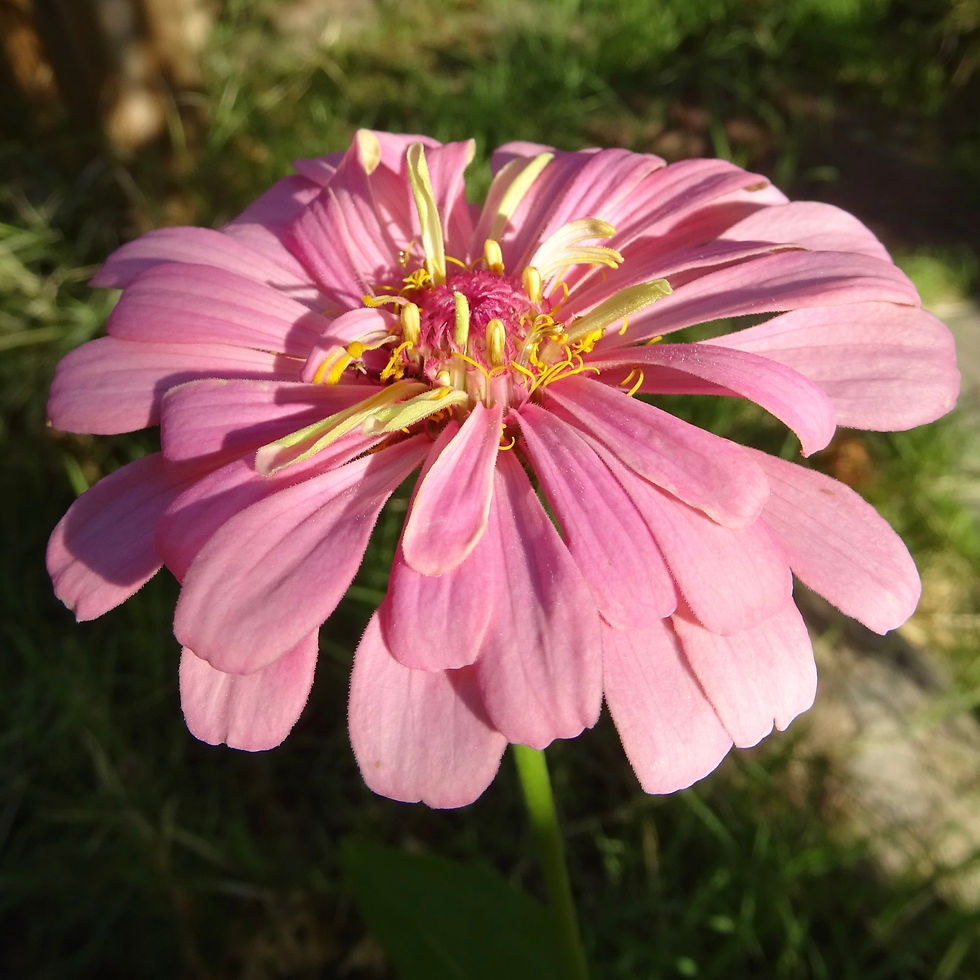
For weeks now the daily highs have been 10-20 degrees (Fahrenheit) above average for this time of year. What happens when an already hot and dry place becomes even hotter, drier?

Note: my numbers are based on older, pre 2025 hard copy gardening charts for the northern Chihauhauan desert, and amateur daily readings taken from thermometers in the front and back of the property and my own backyard rain gauge. Sadly, I cannot advise relying on any recently published US government data, especially weather and climate data. Sigh. Reference librarian hell.

Though often showing signs of distress with curled leaves in the heat of the day, Hopi Blue corn is flowering and just beginning to tassel too.

When I sowed this little patch of Zea mays seeds I was anticipating temperatures would be in the upper eighties (Fahrenheit) for this stage of its life. I am not sure how the current triple digit temperatures will impact pollen or silk viability. Fingers crossed and extra watering is all I can think to do. The cornfield already benefits from late afternoon shade - thanks to that sprawling honey mesquite tree on the west side.

There’s a little jungle of cowpeas, however, who seem to be absolutely in their element, having outgrown their tomato cages, and found other structures to climb.
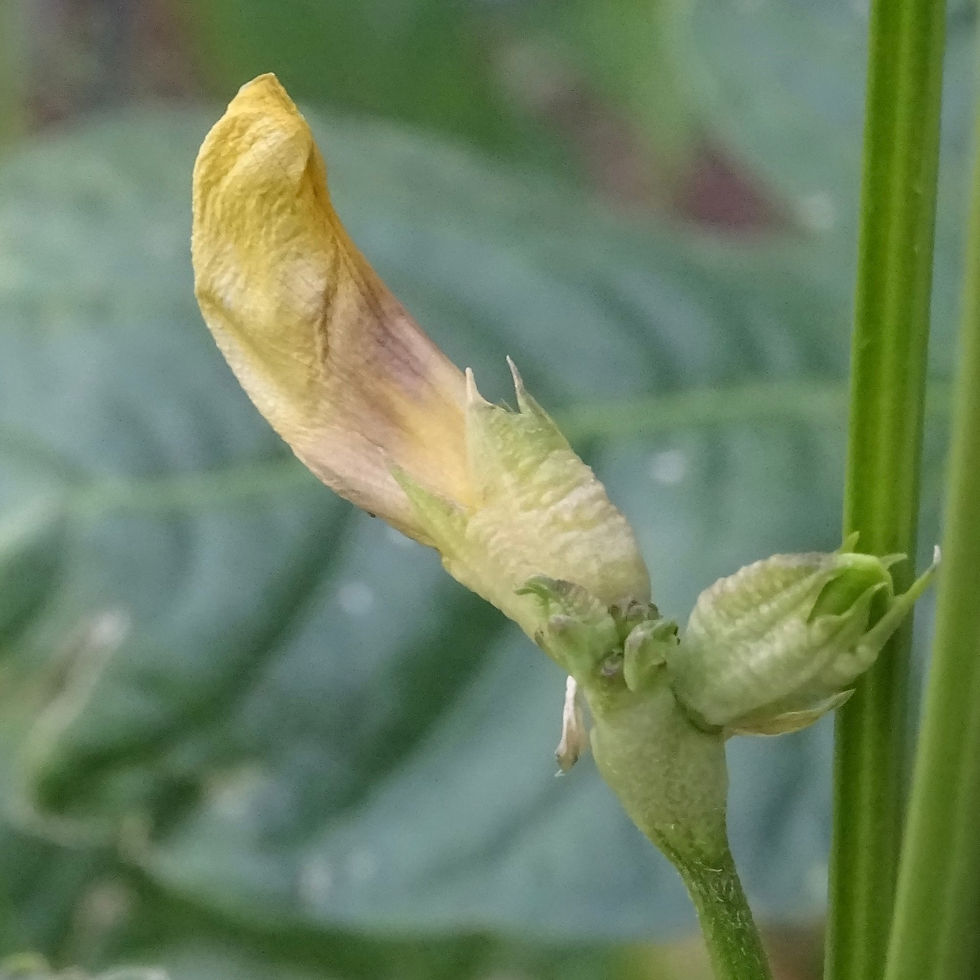
This very vining variety of Vigna unguiculata, from exquisite little red speckled saved seed (whose exact identity has been lost), have recently put forth masses of beautiful pale yellow and mauve flowers: such a delicate, old fashioned palette. I can stare at them for hours, through the kitchen window, from the comfort of refrigerated air, thinking of grandmothers and other gardeners I have known.

This cowpea patch is just beginning to produce pods too. I am especially pleased to spy these lanky, questing proboscises of promise, which look like things from a fantasy artist’s pencil (doesn’t so much in a garden?), since a skunk has completely destroyed the somewhat struggling outback purple hulled pinkeye cowpea patch where sunflowers have proven to not be good companions for cowpeas anyway. Oh well. Skunk’s gotta do skunky, funky things.

In Cafe Paradiso, poblano peppers swell alongside a tangle of tomatoes, sunflowers, Hopi Red Dye amaranth and Madhu Ras melon vines.
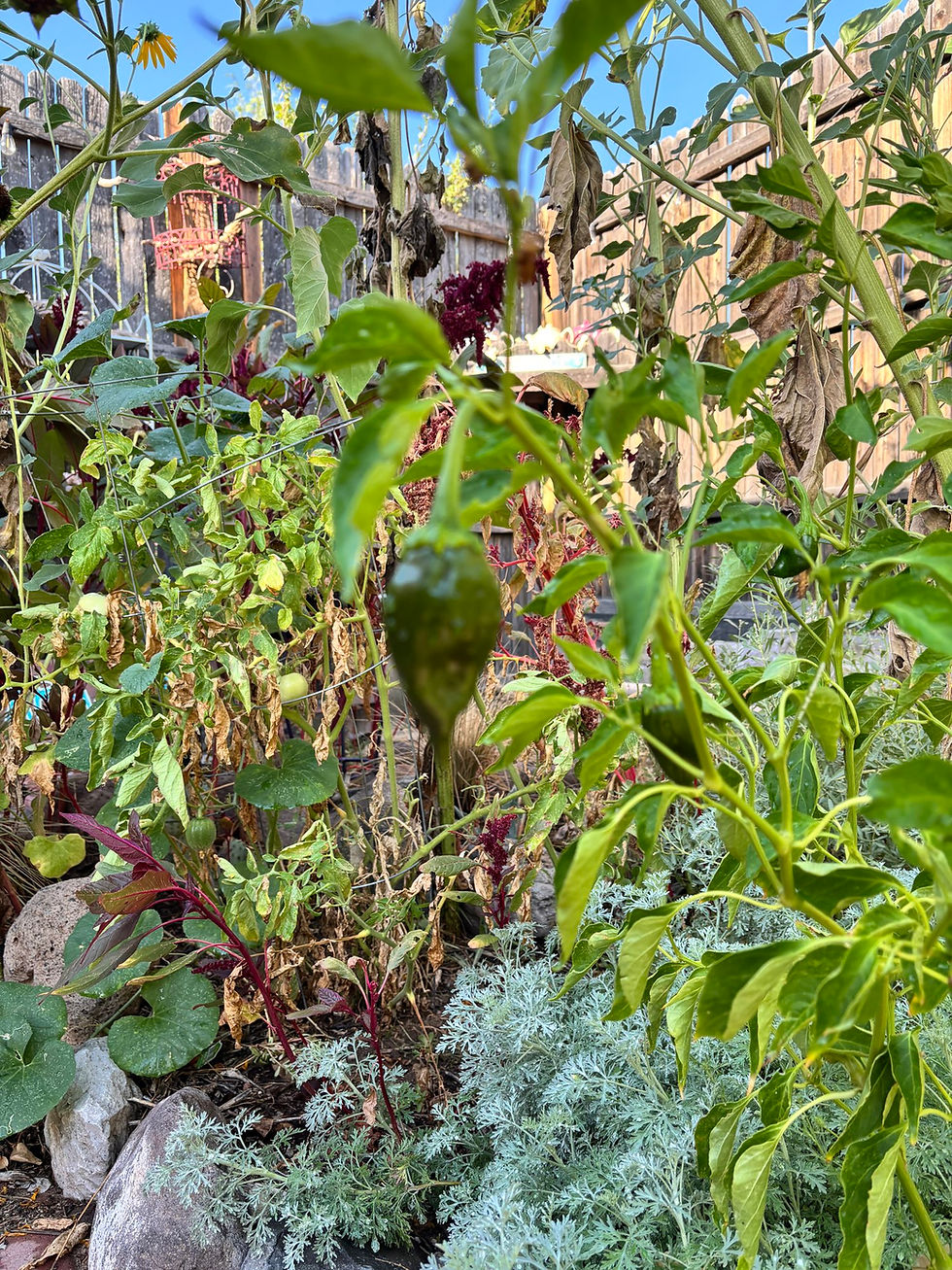
There are even some babies of the Thar desert honey melons beginning to take shape.
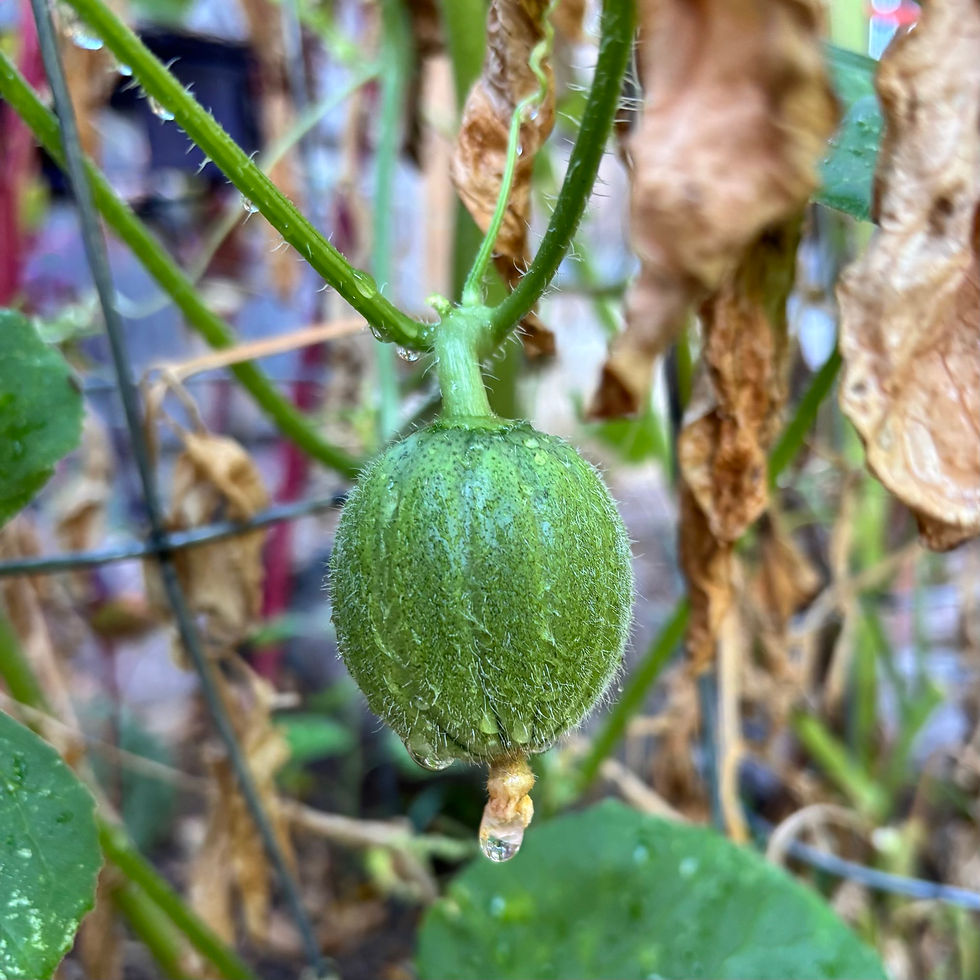
Fingers crossed here too that I can keep these little fruits adequately hydrated with early morning watering.

This unabated heat day after day is really hard on every living thing.

Though I did my best to eat, pickle or dehydrate as much of the fig crop as possible, recently they have seemed to be cooking to a fermented brown mush on the tree. Since I’m not fond of alcohol flavored fruit, I’ve removed the net to allow birds to have their greedy way. The fig tree, along with apricot and pomegranates, was one of my very first tree plantings in the Garden of Earthly Delights, rooting my dream of living in a food forest. After five years the fig really set an astounding quantity of fruit this season. I’ve been spoiled being able to eat my fill out there under the tree at dawn each day, skunk willing, of course. Being an early morning garden prowler myself, I have to take care not to surprise this particular crepuscular roommate.

The hungry birds have already reduced all the black grapes to stalks. Recently it seems that every bird species has become a fruitarian, no matter what Audubon or Cornell thinks of their diet. Figs, however, are the undisputed favourites, even, or maybe especially, the fermented ones. Drunken degenerates, the lot of them!

There will be more desert fruit to enjoy soon though. Opuntia are quietly getting on with making their prickly pears. Pomegranates are slowly ripening too. September and October is typically their harvest month.

Perhaps the best thing about these devilishly hot days is that the green chile harvest has begun. The smell of roasting green chile pervades every aspect of life. To live this close to the epicenter of world production of the most amazingly flavored food, makes the extreme heat worth it.
After all.
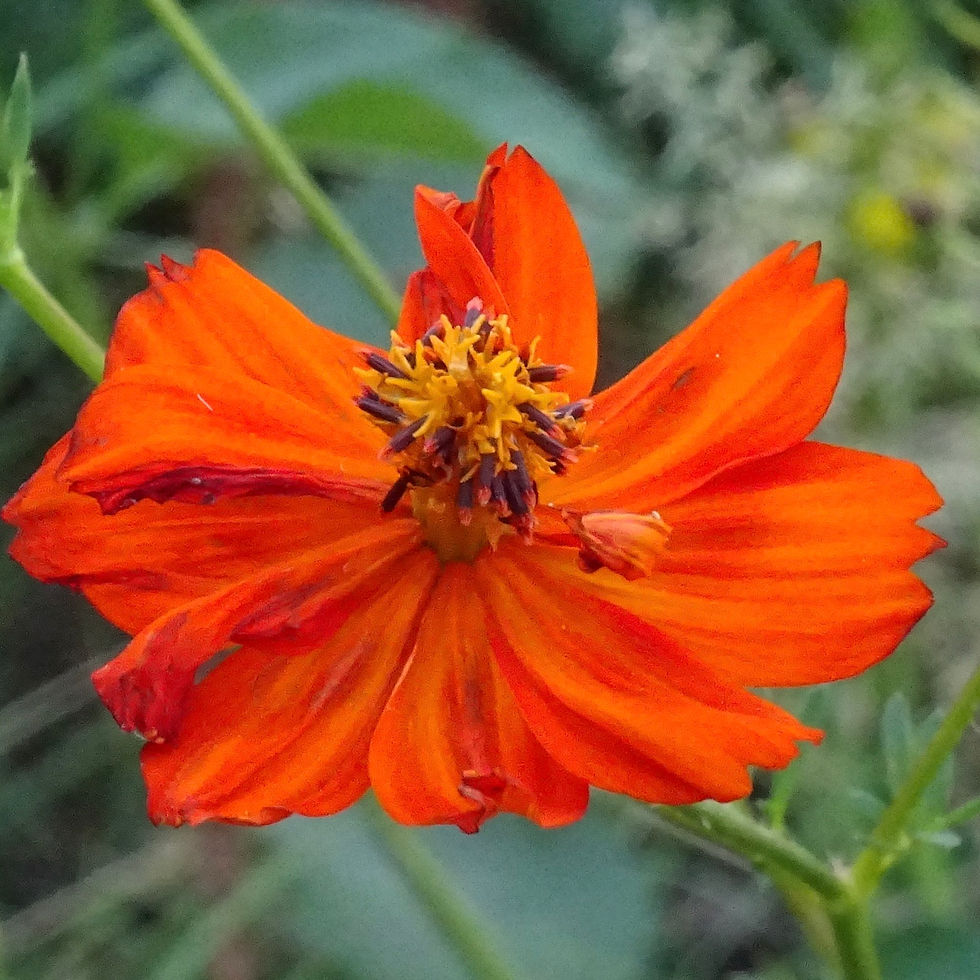
Maybe. El Diablo is still on the throne, whichever way one looks at it. We are in thrall.




Comments